Beskrivelse
Origin: Kainamui – New Ngariama Farmers Cooperative Society
Kainamui smallholder farmers
Kainamui collaborates with approximately 1800 smallholders, although not all of them are active members. On average, each farmer possesses around 200 trees. The region’s red volcanic soil, abundant in nutrients, provides an ideal environment for cultivating SL28 and SL34 varieties.
Kainamui and the FCS are known for giving back a big portion of premiums to the producers. They also provide financial support for school fees and farming needs.
Besides Kainamui, The New Ngariama FCS is also responsible for the success of other washing stations like Kamwangi.
Harvesting
The farmers mainly grow SL28 and SL34, but like most Kenyan cooperative coffees, they can be a mix of everything. Other common cultivars are K7, Ruiru 11, and more recently, Batian.
Processing
Farmers sort their cherries by ripeness before they go into production. They are then placed directly in the hopper that is connected to the pulping machine.The coffee flows from the hopper down to the pulper, and the pulper removes the skin and pulp (usually an Agaarde disc pulping machine). The machine is designed to conduct grading of high and low quality (1st, 2nd, and 3rd). Grade 1 and 2 are fermented separately, while Grade 3 is considered to be of lower quality.
The coffee is fermented for 16-24 hours under closed shade. After fermentation, the coffee is washed and graded again in channels, so that the cherries of lower quality (with lower density) will float. They are removed, leaving the denser, higher quality beans to be separated as higher-grade lots. The cherries are then soaked under clean water for approximately 24 hours.
After soaking, the coffee is spread out on raised beds and dried for 7 to 15 days.

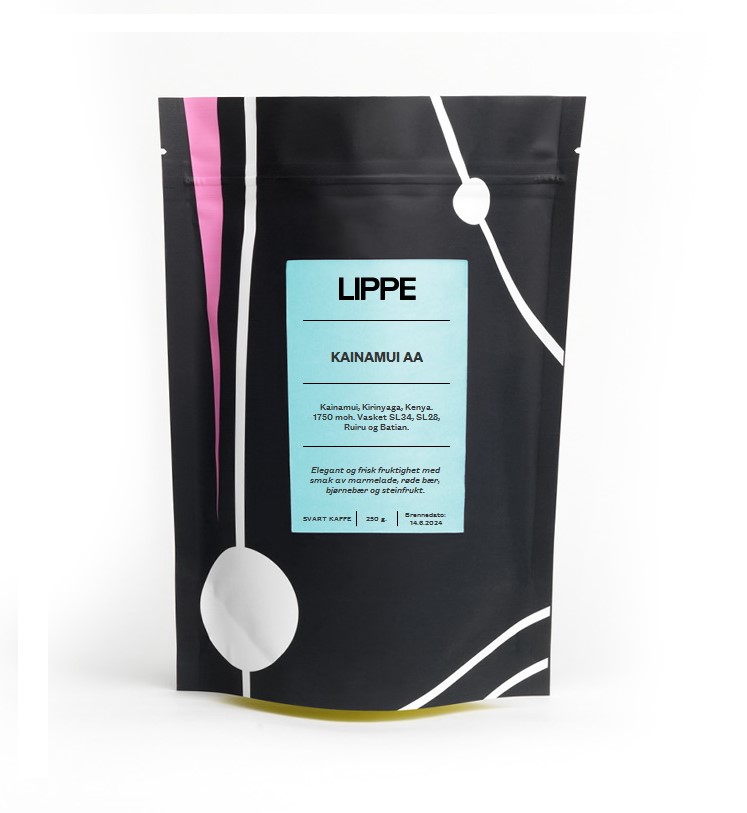
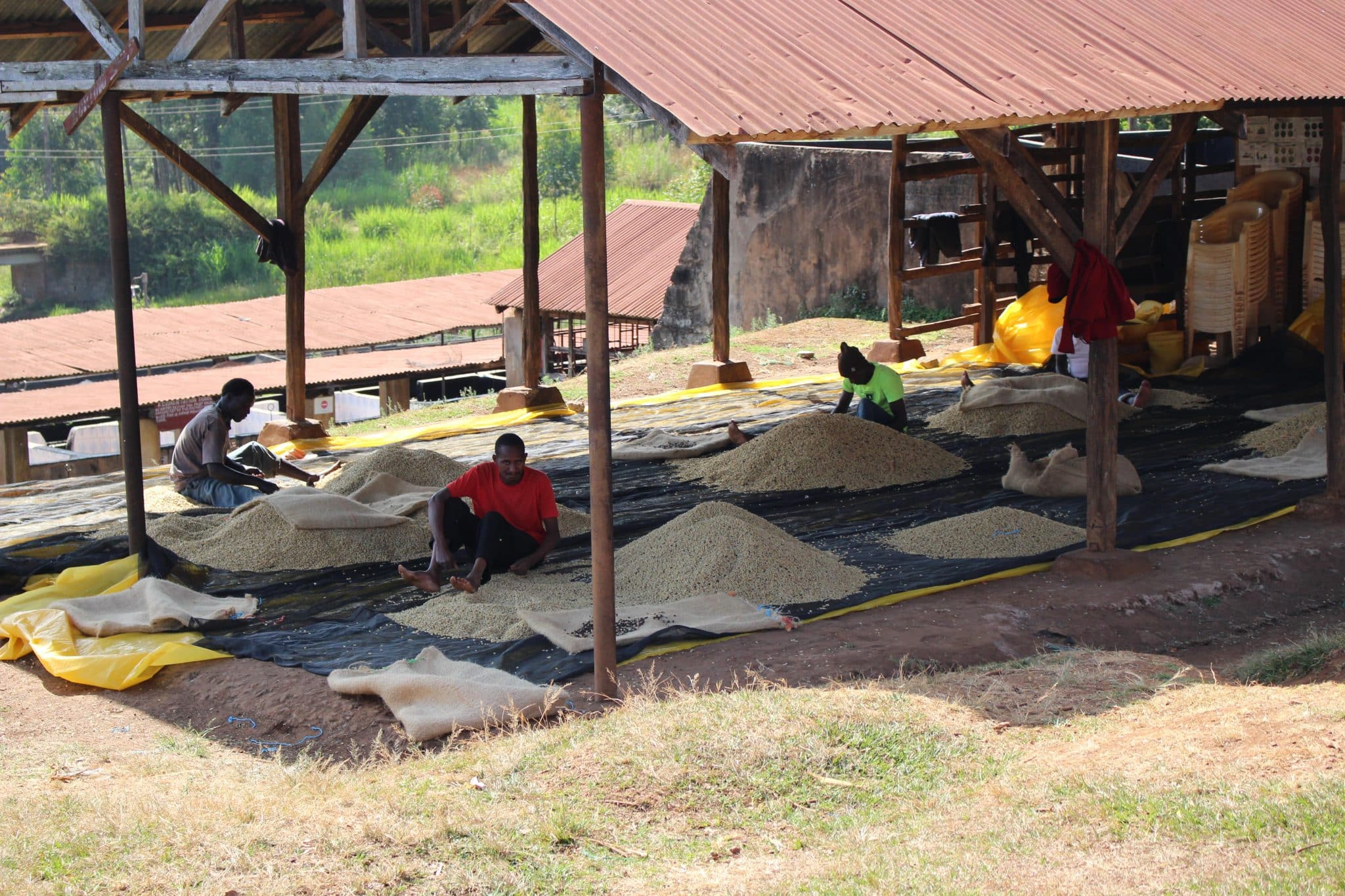
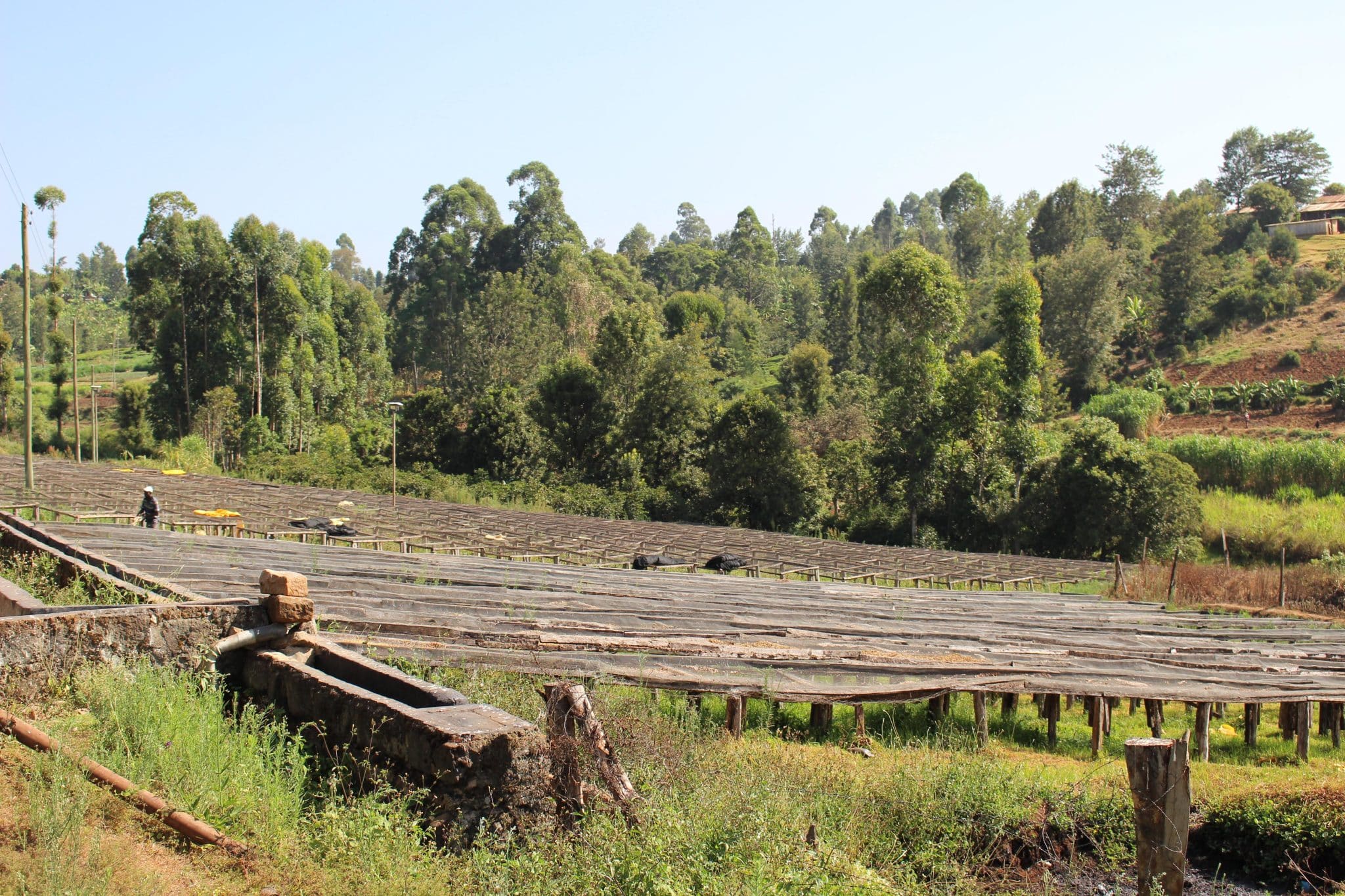
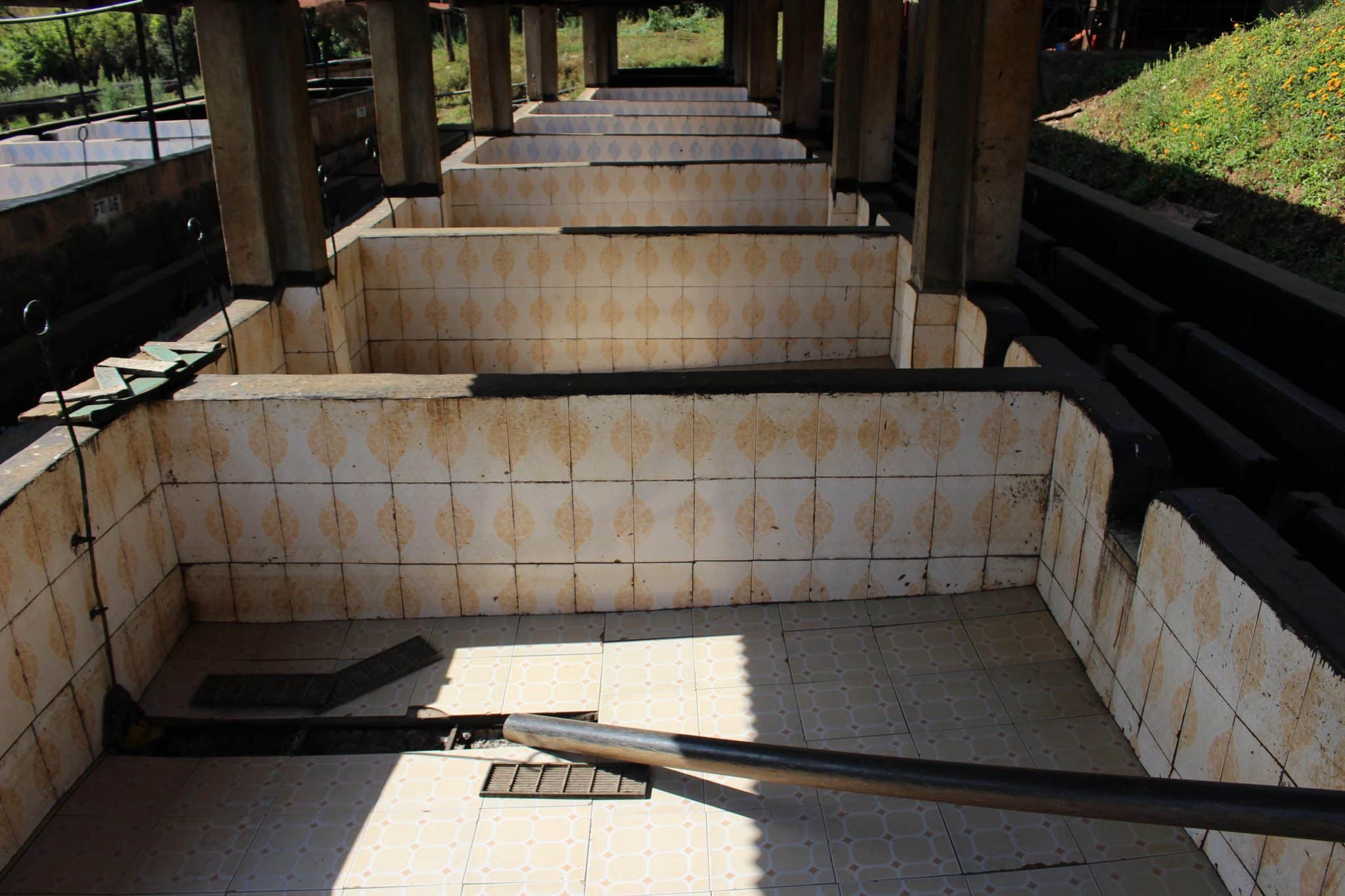
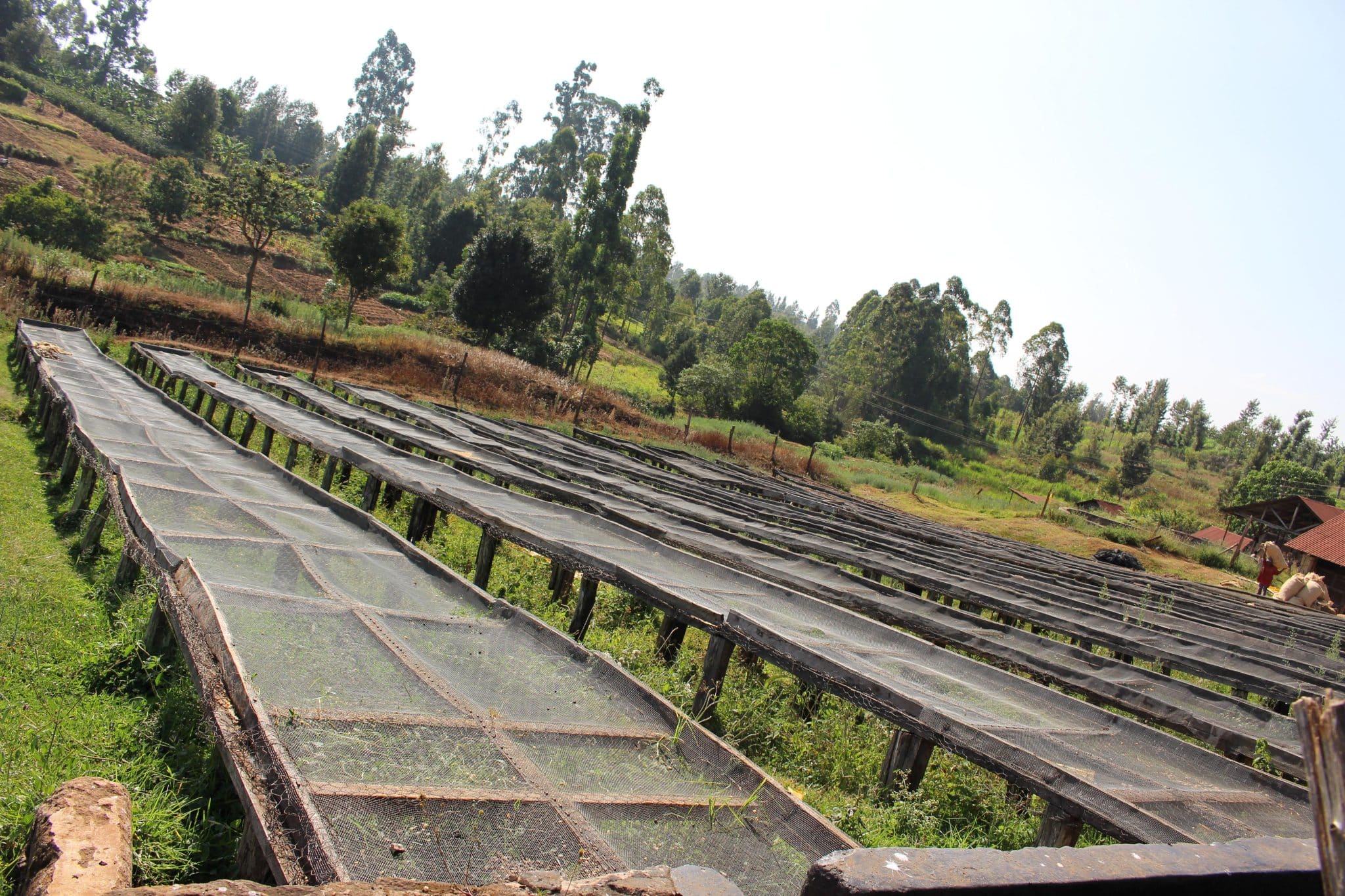



Ida Gilbert (bekreftet eier) –
Denne var rett og slett utmerket Kenya!
Alexander von der Lippe –
Takk! Det var godt å høre du verdsetter den. Vi plukker alltid ut den kaffen fra Kenya vi synes er best av de vi kommer over, uavhengig av pris.